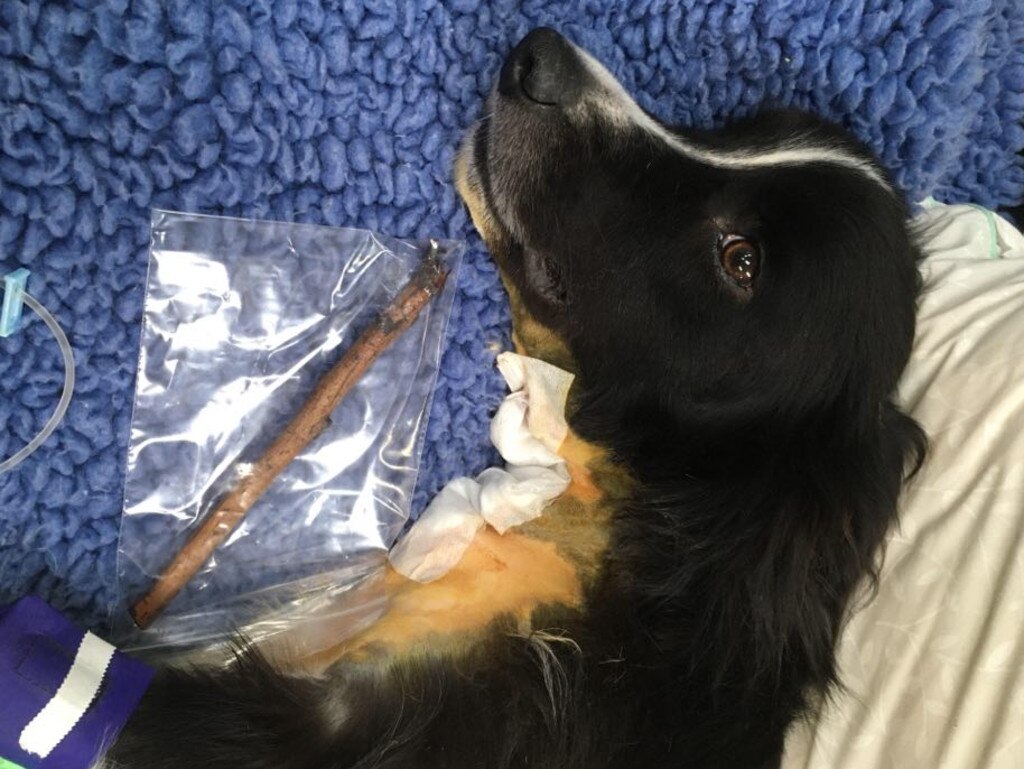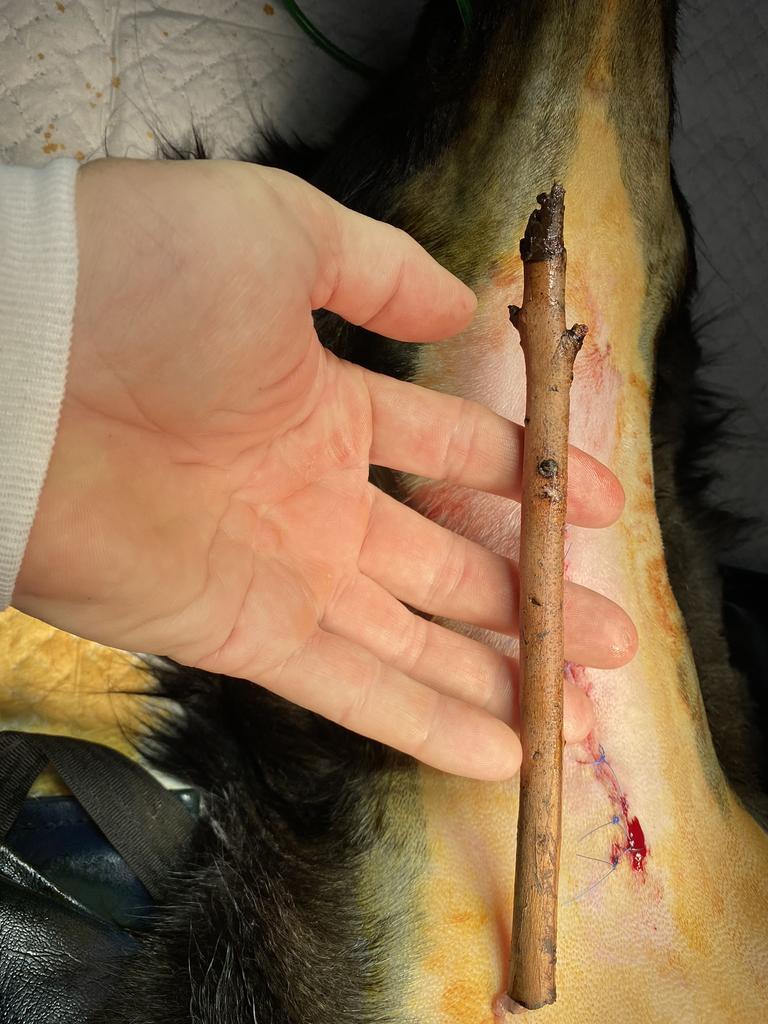Don’t use sticks as toys: vet’s warning to dog owners
The owners became concerned when their border collie was upset after a visit to the park. Vets soon discovered the reason. WARNING: Graphic content
WARNING: Graphic
It’s a common sight – an innocent game of fetch with a stick at the park but it could end painfully for your beloved dog.
A prominent Sydney vet has warned dog owners against using sticks as toys after one four-legged patient was injured after chasing a stick. The dog’s family noticed their beloved two-year-old Border Collie, Dash seemed ‘upset’ and was refusing his food after they returned from the park.
RELATED: $16 buy driving dog lovers nuts
RELATED: Coles’ latest offering to Rose Bay pooches
After taking him to Animal Referral Hospital (ARH) in Sydney’s north west suburb of Baulkham Hills, the emergency team determined Dash was experiencing pain around his mouth and the back of the neck. They then made the grisly discovery.
“After being sedated, our team discovered he had a penetrating wound to the right side of the base of his tongue and they could feel a hard foreign body (believed to be a large stick) along the peri-laryngeal area to the thoracic inlet,” shared ARH on their Facebook post.

Dash was taken to ARH Homebush where Specialist Surgeon Dr David Simpson removed the stick during surgery. Speaking to news.com.au, Dr Simpson said Dash was lucky.
“Typically the enthusiasm of the average ‘stick-chaser’ is their downfall. The dog runs to retrieve the stick with great energy and if the stick lands end-on just as the dog catches up with it, the forward momentum of the dog will force the stick through the back of the dog’s throat or under the tongue,” he said.
“Dash was lucky the stick stopped just inside the chest and it didn’t puncture the heart or lungs. Dash was also lucky we were able to find the stick and removed it and the many small bark fragments that split off it.

While Dash has since made a full recovery, Dr Simpson has seen several cases with less happy endings. In more severe cases the stick can act as a massive splinter. This can create “ongoing abscesses and discharging infections until the foreign material and the bacteria associated with it are eventually removed,” he says.

Although Border Collies seem to be especially common offenders, it’s a common problem seen among animal emergency services.
“Unfortunately this is not a unique case and it isn’t even the worst I’ve seen,” he says.
“Dog owners love to play fetch with their dogs and while it is a great bonding activity, it’s far safer to play with balls or rubber toys than with sticks.”



